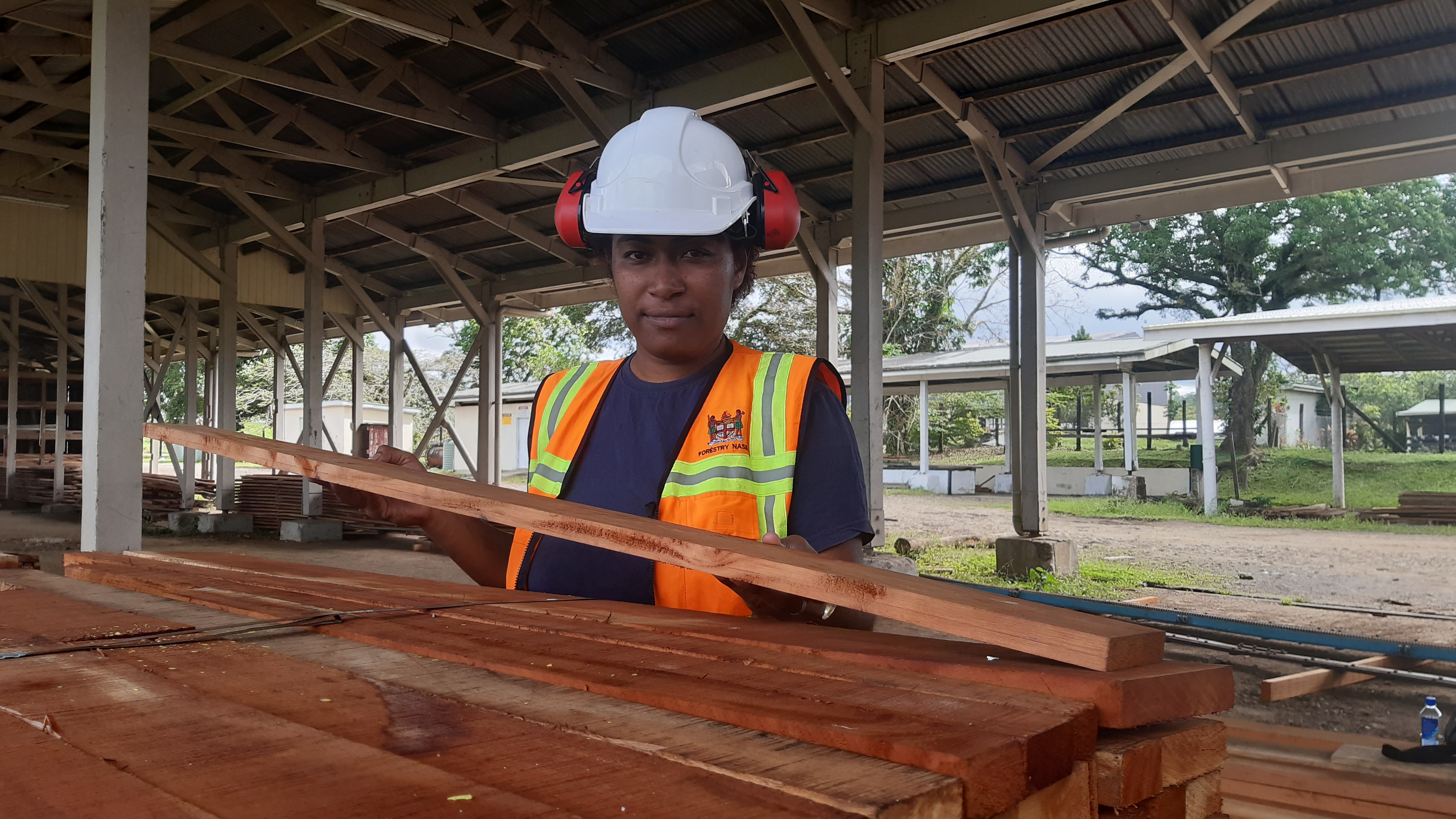
Forest Certification to Generate Economic Activity
Forest
certification is not just a piece of paper ensuring forest management
certification standard compliance is met but it is a document that can generate
income in terms of international and domestic trade in the timber industry.
Minister for
Forestry, Hon. Osea Naiqamu said that while the global pandemic caused job
losses and the closure of operations for many companies, the Ministry is
looking into possibilities of bringing about forest certification for companies
in Fiji.
“The Ministry
is exploring opportunities of forest certification to meaningfully engage some
companies with recovery operations with the hope that this will help re-instate
some jobs in the country,” he said.
Minister
Naiqamu said the Ministry will first work with Fiji Hardwood Corporation
Limited (FHCL) to achieve its forest certification as they are getting
indications from lucrative overseas markets that want to buy their products.
“This is of
vital importance because at this juncture when Fiji needs to enhance economic
activity - our mahogany plantations are actually mature and ready to be
harvested,” Minister Naiqamu said.
“What we need
is to open up the high end markets and majority of them would like to have
certified products which is why we need to work on the forest certification.”
Minister
Naiqamu said with the $15.7 million budget allocation, the Ministry will assist
FHCL with its forest certification which focuses on the sustainable management
of resources and chain of custodies.
“This will
ensure our mahogany products can access lucrative markets which will in turn
help increase the forestry sector’s contribution to Fiji’s economic growth.”
Minister Naiqamu
said Fiji Pine Limited paved the way some years back in terms of forest
certification where they were able to access markets in Japan and other
countries.
“We hope to
achieve the same fete with FHCL in the next six months as this is not an easy
process but with more awareness we know the forest certification will be of
great benefit to Fiji.
“So if we get
the forest certification right it is a most welcome injection to the economy
and to the livelihoods of our people,” Minister Naiqamu said.
Forest
certification is a voluntary process whereby an independent third party (the
certifier) assesses the quality of forest management and production against a
set of requirements or standards predetermined by a public or private
certification organization.
It is a market mechanism to promote
the sustainable use and management of forests and to identify sustainably
produced products for the consumer. Forest certification and associated
labelling is a way of informing consumers about the sustainability of the
forests from which wood and other forest products were produced.
To label an
end-product as certified, both forest management certification and
chain-of-custody certification are required.
Most forest
management certification standards address a wide range of economic, social,
environmental and technical aspects of forest management, including the
well-being of workers and of families living in and around the forest area
subject to certification.
Forest
managers – such as forest owners, entrepreneurs, associations and timber
companies – may voluntarily decide to apply for certification and they may do
so in expectation of better prices for their products, to maintain or increase
access to markets for their products, to improve their public image and to
achieve social and environmental goals.
A
certification label on a forest product informs potential buyers that the
product was produced in a well-managed forest in accordance with a given set of
standards.
Furthermore,
the Ridge to Reef (R2R) project funded by UNDP and administered by the Pacific
Community (SPC) for implementation by Ministry of Waterways and Environment and
the Ministry of Forestry has a component on Forest Certification and
Verification of Timber Supply Chains for plantation forest where Forestry is a
lead agency and WWF is the Implementer.
The Ridge to
Reef project, launched in 2016, aims to preserve biodiversity, provide ecosystem
services, sequester carbon, improve climate resilience, and sustain livelihoods
through a ridge-to-reef management of priority water catchments on the two main
islands of Fiji.
One of its
main goals is to ensure an integrated approach to land, water, forest,
biodiversity, and coastal resource management in a way that helps reduce
poverty and support sustainable livelihoods in local communities.